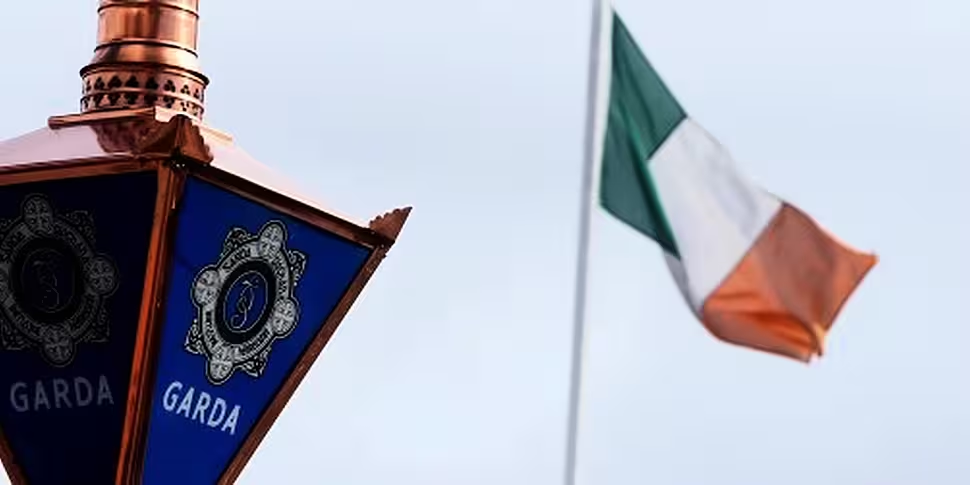Barely a month after Noirín O'Sullivan resisted calls to step aside during the inquiry into the whistleblower controversy, the Garda Commissioner has found herself under fresh pressure.
Sinn Féin has published a motion of no confidence in the Commissioner after the force revealed details of incorrectly issued court summonses and major discrepancies in breath test data.
Fianna Fáil leader Michéal Martin, meanwhile, said his party "can no longer articulate confidence" in O'Sullivan until they receive clarity on the issues.
For now, however, it appears that the Commissioner retains the support of Government ministers - including the Taoiseach and Tánaiste.
Noirín O'Sullivan has found herself forced to deal with a number of Garda controversies since taking the top job in 2014 - although it was a major scandal that landed her the promotion in the first place.
2012-14: The penalty points controversy

Martin Callinan. Image: RollingNews.ie
On March 25th 2014, the then Commissioner Martin Callinan resigned amid the controversy over the Garda handling of penalty points and the treatment of whistleblowers.
The controversy was ignited by the disclosures of Garda whistleblowers Maurice McCabe and John Wilson, who alleged malpractice and corruption within the force - particularly in relation to irregularities within the penalty points system.
The alleged mishandling included the quashing of points, and there were claims some well-known individuals were among those who had their penalties cleared.
A 2013 report from the Comptroller & Auditor General supported some of the whistleblowers' allegations, finding "operational weaknesses" in the fines system.
Furthermore, an independent report published in March 2014 by the Garda Inspectorate highlighted "consistent and widespread breaches" of the penalty points rules.
In January 2014 Martin Callinan had told the Public Accounts Committee that the allegations raised by whistleblowers against colleagues were "quite disgusting".
Amid a mounting political backlash over his remarks, Callinan announced his "retirement" in March 2014 - saying he made the decision in the interests of the force and his family.
The resignation came at the same time as another Garda controversy, which involved claims that incoming and outgoing telephone calls were taped and recorded in a large number of Garda stations.
Amid fears that legally privileged conversations - such as those among solicitors and suspects - were among the recordings, the Taoiseach and other ministers raised concerns that the recordings could potentially impact court cases & tribunals, both past & present.
The Fennelly Commission was established to investigate the alleged recordings and Martin Callinan's resignation.
That commission ultimately found that Mr Callinan's decision to quit was a direct result of Enda Kenny having sent a top civil servant to his home, but also stressed that the Taoiseach did not force Mr Callinan to resign.
2014: The Guerin report

The former justice minister Alan Shatter. Image: RollingNews.ie
Noirín O'Sullivan - then the Deputy Commissioner of Operations - took over from Mr Callinan in March, and was formally appointed on a full-time basis eight months later.
In February 2014, the Government appointed senior counsel Seán Guerin to carry out an independent review of Sgt McCabe’s allegations.
The Guerin report was published in 2014, and strongly criticised Alan Shatter - the then justice minister - for the way he dealt with the whistleblower, highlighting his alleged "inadequate response".
Mr Shatter resigned shortly after receiving the report.
However, the O’Higgins commission - which was established in the aftermath of the Guerin report - found that Shatter had taken the concerns of whistleblowers "very seriously".
Last year, a court decided that Mr Shatter should have been asked for his version of events before Sean Guerin concluded he had not adequately handled allegations of Garda misconduct - a judgement the former minister welcomed.
The Taoiseach has since corrected the Dáil record regarding comments about Mr Shatter, and the Guerin report has been pulled.
May 2016: The O'Higgins report
The whistleblower story made national headlines again in May of last year, following the publication of the O'Higgins report.
The report itself found no evidence of Garda corruption or criminality. However, it did find serious flaws with how several crime investigations were handled by the Cavan-Monaghan division, and how the division treated the victims of crime.
In one case, for example, a woman named Mary Lynch was violently attacked in Virginia, Co Cavan by Jerry McGrath - the man who went on to murder another woman, Sylvia Roche Kelly.
McGrath was on bail for charges related to the attempted abduction of a child in Tipperary at the time of the murder, and he had been on bail for charges related to the Virginia assault at the time of the Tipperary incident.
May 2016: 'Malice' allegations

Maurice McCabe. Image: RollingNews.ie
Shortly after the report's release, The Irish Examiner reported that documents from the O'Higgins Commission of Inquiry suggested that a barrister for Commissioner O’Sullivan had been instructed to question Sgt McCabe’s motivation in bringing forward concerns about the force.
According to journalist Mick Clifford, senior counsel for Commissioner O'Sullivan had claimed Sgt McCabe told two officers he was making his complaints because of "malice" towards a senior officer.
Sgt McCabe, however, is said to have presented the Commission with a tape of the meeting in question that disproved the allegations, while the senior counsel for the Commissioner later told the inquiry it was an “error on his part”.
The comments did not feature in the final report.
Responding to the claims, Commissioner O'Sullivan said: "I want to make it clear that I do not - and have never, regarded Sergeant McCabe as malicious."
The matter did lead to some opposition TDs calling for O'Sullivan's resignation. However, she retained the confidence of the Government.
February 2017: An alleged smear campaign
For senior Gardaí, much of the latter half of 2016 was dominated by the pay dispute that threatened an unprecedented Garda strike. That was ultimately averted when a deal was reached at the Labour Court.
The whistleblower controversy, however, reignited last month - and briefly looked like it had the potential to collapse the minority Government.
The child & family agency Tusla apologised fully to Sgt McCabe after it emerged the agency had created a file of false sexual abuse allegations around the Garda whistleblower "in error".
The untrue allegations were passed to Gardaí but Sergeant McCabe was never informed.
Amid political & public outrage over the revelations, the Government agreed to a full public tribunal of inquiry into allegations of a smear campaign against Sgt McCabe and other Garda whistleblowers.
The Government was heavily criticised for their handling of the matter, and members of the Independent Alliance suggested they had considered pulling out of the minority Government.
Enda Kenny's poorly received efforts to clarify the sequence of events in which ministers learned of the allegations dramatically increased pressure for him to clarify his future leadership intentions and timetable for stepping down.
Noirín O'Sullivan was not immune to the controversy. She insisted she had no knowledge of the alleged campaign and refuted “in the strongest terms” allegations that she phoned journalists to make them aware of false claims concerning Sgt McCabe.
She said: "A campaign of false accusations, repeated and multiplied, do not make me guilty of anything."
She again resisted opposition calls to stand aside, insisting: "I'm not taking that option because I am innocent and because An Garda Síochána, under my leadership, has been making significant progress."
March 2017: A new scandal

File photo. Image: RollingNews.ie
While the whistleblower scandal is likely to become a major source of scrutiny once the Charleton inquiry commences its full public hearings, for now it is a separate Garda controversy that has put the force under pressure.
Last week officers confirmed that between 2006 and 2016 there were 147,000 motor offences where a court summons was issued instead of a fine (known as a fixed charge notice).
In essence, individuals affected were issued with a summons without having been given an opportunity to pay their fine.
In total, 14,700 of the cases resulted in a penalty being imposed by the courts. Gardaí will now contact those wrongly convicted to tell them the process for setting their convictions aside.
Separately, Gardaí discovered a massive discrepancy in their recorded number of breath tests.
Almost a million extra tests were recorded - with the force admitting they do not know what caused the mistake.
In the face of mounting criticism, Commissioner O'Sullivan has remained defiant - indicating she will remain in her position to oversee a major reform of the force.
During a press conference this week over the scandal, Commissioner O'Sullivan argued: "I have a journey of work that I have to do, and I have to make sure that I see out that commitment.
"I am absolutely committed to making sure that we continue to deliver on the transformation, the change, and the reform agenda that I committed to Government that we would do," she added.










